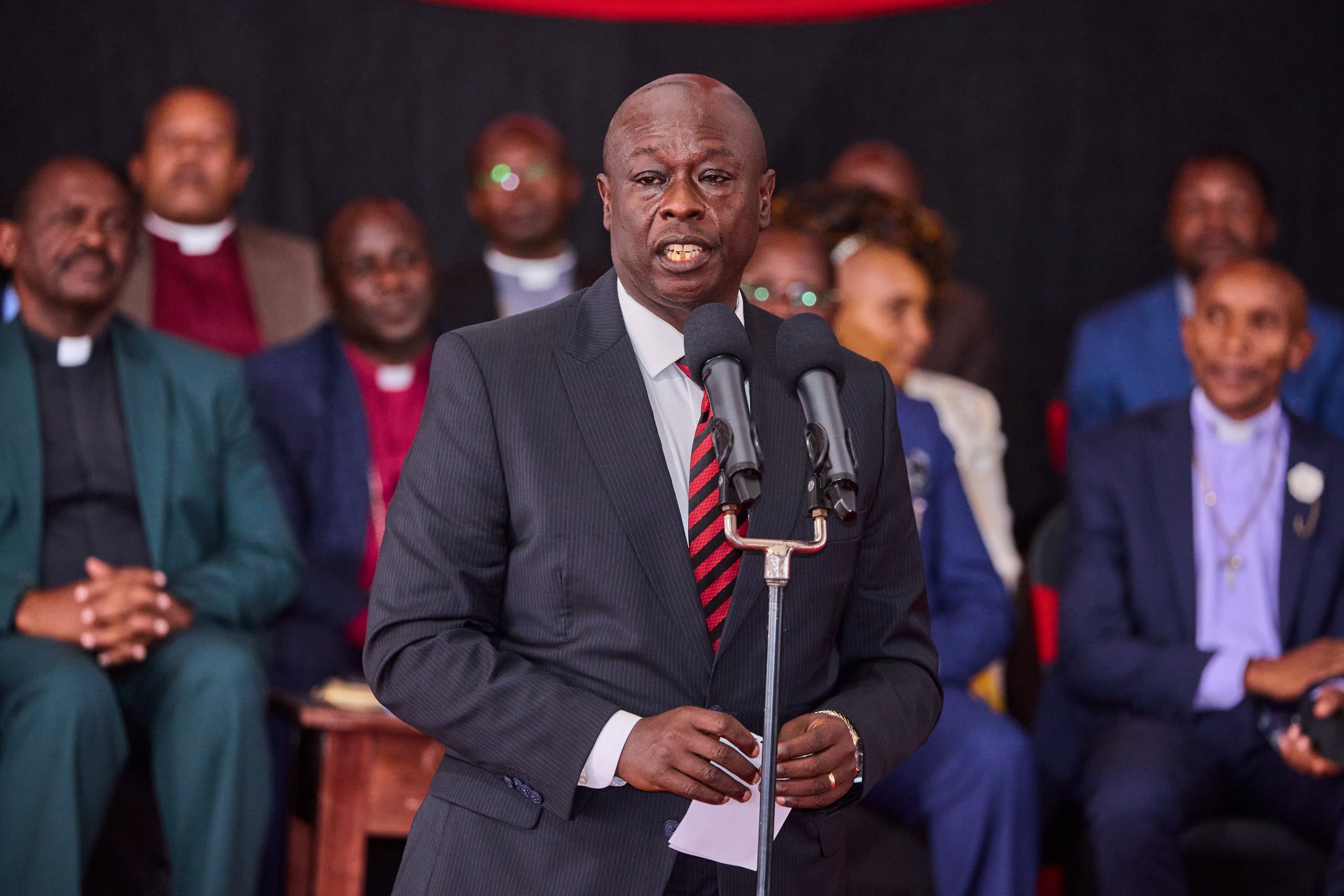OPINION: Population-based formula not the best for resource allocation

The Commission for Revenue Allocation was established as an independent institution to facilitate this process and build consensus among stakeholders.
The recent push by some Mount Kenya politicians, including Deputy President Rigathi Gachagua, for the adoption of the "one-man-one-shilling" funding formula has reignited the debate on equitable resource distribution in Kenya.
While the proponents argue that this formula ensures fairness by allocating resources based on population size, their narrow focus on devolved funds, disregard for historical inequalities and regional disparities, and the potential consequences of such an approach expose the flaws in their reasoning.
More To Read
- CoB: Billions in potential revenue lost amid weak enforcement in counties
- Bill expanding Senate's powers sparks debate over oversight, budget control
- Kenya's oversight bodies crippled by underfunding, government disregard, report reveals
- Counties face centralised revenue control under new Treasury regulations
- Senators vow to block revenue formula slashing funds for 21 counties
- Senate committee rejects CRA revenue plan, backs baseline guarantee to protect county funding
Firstly, it is crucial to point out that the "one-man-one-shilling" argument only targets the 15 per cent of revenue allocated to devolved funds, conveniently ignoring the larger 85 per cent spent by the national government.
This selective application of the principle raises questions about the true intentions behind the push.
If the proponents were genuinely concerned about equitable resource distribution, they would advocate for the same principle to be applied to the entire national budget.
However, their silence on the distribution of the 85 per cent suggests a biased agenda that favours their regional interests.
Moreover, the skewed allocation of national development projects to areas perceived to be the strongholds of the regimes in power further undermines the credibility of the "one-man-one-shilling" argument.
The concentration of major infrastructure projects, such as roads, railways, and airports, in certain regions while neglecting others, perpetuates the very inequalities that the devolved system seeks to address.
It is hypocritical to demand population-based allocation for devolved funds while turning a blind eye to the disproportionate allocation of national resources.
The Constitution of Kenya recognises the need for affirmative action and equitable distribution of resources to address historical injustices and regional disparities.
Article 203 specifically mentions the need to consider economic disparities among counties and to take affirmative action for disadvantaged areas and groups.
The drafters of the Constitution understood that a simplistic population-based formula would not suffice in a country with diverse geographical challenges, varying levels of development, and a history of marginalisation.
The northern Kenya counties such as Garissa and Isiolo have long suffered from neglect and underinvestment.
These vast regions with sparse populations face unique challenges in providing basic services and infrastructure.
Allocating resources solely based on population size would perpetuate the marginalisation of these counties and widen the development gap. It is the responsibility of the national government to ensure that these regions receive adequate support to overcome their historical disadvantages and achieve equitable development.
Furthermore, the "one-man-one-shilling" argument fails to consider the principles of equity and inclusivity enshrined in the Constitution. True fairness cannot be achieved by treating everyone equally without considering their unique circumstances and needs.
The Constitution recognises the importance of affirmative action to level the playing field and ensure that marginalised communities access opportunities and resources.
By ignoring these constitutional imperatives, the proponents of the population-based formula risk undermining the foundation of our democratic system.
The Constitution deliberately uses the term "basis" instead of "formula" when discussing revenue sharing. This choice was made to avoid the rigidity and limitations of formulas, which can put the country in a straightjacket until the next revision.
Instead, the Constitution envisaged a more flexible and goal-oriented approach, guided by the principles of promoting an equitable society and equitable development.
The Commission for Revenue Allocation was established as an independent institution to facilitate this process and build consensus among stakeholders.
The ongoing narrative on either population or geography in the revenue-sharing formula misses the point. The Constitution's overarching principle is to redress the legacy of inequitable development, marginalisation, and exclusion, and to pursue development convergence across the country.
The "basis" for revenue allocation should be driven by achieving equitable outcomes, such as reducing disparities in income per person, life expectancy, education, healthcare access, and infrastructure development.
The politics of "one-man-one-shilling" represent a dangerous attempt to return to the trickle-down paradigm of the past, where development resources were concentrated in areas perceived to have high potential and receptive populations.
This approach perpetuates the exploitation of resources in the periphery for the benefit of the centre, reminiscent of colonialism. It undermines the dignity and rights of every citizen, every community, and every region, as enshrined in the Constitution.
Kenya must reject this drive for a simplistic and biased formula and instead embrace a comprehensive, goal-oriented, and consensus-driven approach to revenue sharing.
Only then can we build a Kenya where every citizen, every community, and every region feels valued, included, and empowered to contribute to our shared prosperity.
The writer is a public policy specialist and a management consultant.
Top Stories Today














































